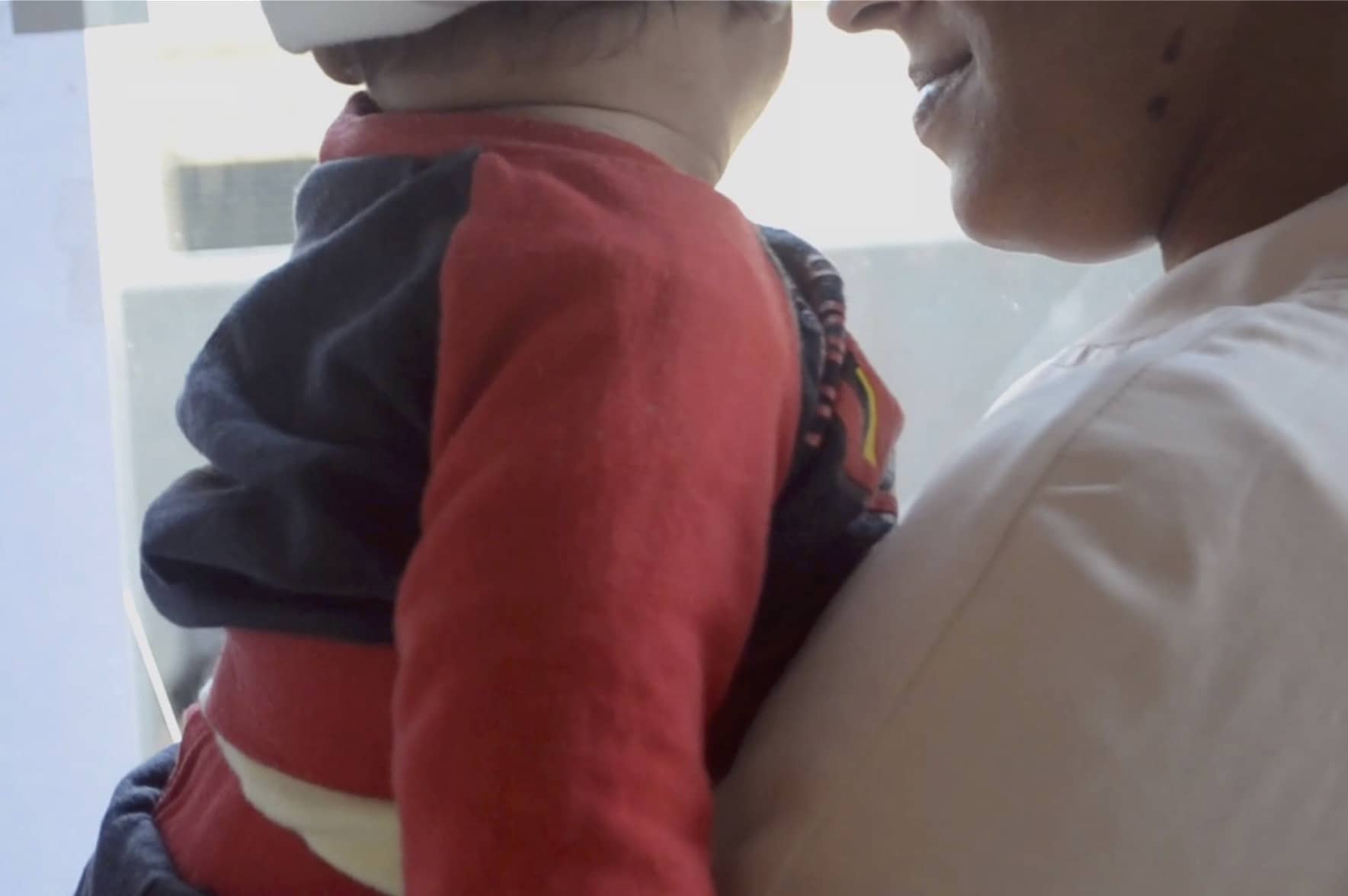
www.buildingsandcities.org/insights/commentaries/energy-research-global-south.html
Rethinking Energy Research in the Global South

Partnering with NGOs and integrating local knowledge can enable researchers to develop effective and context-specific solutions
In rapidly urbanising countries across the Global South, the demand for more adequate housing and sustainable energy solutions has never been more urgent. Minna Sunikka-Blank (University of Cambridge) explains why new partnerships and local knowledge integration of research in the Global South are needed. Specifically, there is a need for non-traditional partners to engage in research, such as non-governmental organizations (NGOs).
Dominance of Western perspectives in energy research
The energy research agenda has long been dominated by Western, and disproportionally Anglo-American perspectives (Sovacool 2014). These inevitably draw from the personal experiences of the researchers, often overlooking the specific contexts and needs of the Global South. For example, while the concept of energy justice has gained traction in recent years (Sovacool & Dworkin 2014), few energy studies have engaged with postcolonial critique. In the field of urban geography, Blidon & Zaragocin (2019) highlight the dominance of Anglo-centric feminist geography within knowledge production. Additionally, development discourse has been criticized for viewing slums as homogeneous communities, failing to recognize the diversity of needs and aspirations within these populations (Rigon 2022).
Castán Broto et al. (2018; 2024) argue that postcolonial and intersectional approaches can help to challenge assumptions in energy policies, which lean towards universalising approaches. A postcolonial lens critiques the notion of modernization and development as linear processes. It criticizes the imposition of external 'expert' perspectives on local stakeholders and imposing 'the will to improve' (Murray Li, 2007). Researchers must actively seek out and incorporate the voices and knowledge of those who live and work there. To avoid an extractive setting for energy projects, Devine-Wright & Ryder (2024) propose a place-based reflexivity approach that combines the principles of reflexivity, positionality and emplacement. They call for energy researchers to establish longer term partnerships in local communities and community-based participatory action research.
However, this is easier said than done. We are all familiar with the constraints of academic research - short timelines, tight budgets, and the challenges of conducting long and immersive fieldwork.
NGOs as research partners
NGOs offer a critical bridge between academic inquiry and the lived realities of marginalized communities. They possess invaluable practical knowledge and understanding of challenges and opportunities in specific geographical contexts, particularly in marginalised communities. NGOs can establish trust with local communities, stakeholders, and policymakers, enabling them to access hard-to-reach populations and organize meaningful participatory activities, such as focus group discussions and interviews. This local knowledge is critical for gathering ethical, in-depth research data, expanding the research questions beyond the obvious 'what' and 'how' to the often-overlooked 'why.'
Case study: transitional housing solutions in South Africa
In the UK Arts and Humanities Research Council (AHRC)-funded research project Filming Energy, my colleagues and I collaborated with NGOs in South Africa and India. The project examined transitional housing and energy access through case studies in both countries (Sunikka-Blank et al. 2022a; 2022b).
We heavily relied on the NGO expertise, intuition and knowledge in the research design and the NGO partners were funded by the Research Council. They had established high levels of trust and influence among the stakeholders. They were crucial in brokering relationships between research participants and researchers, as well as between housing beneficiaries and government actors. The NGOs advised in setting the survey questions, interviews and in the participatory data collection included filming. They also organised policy workshops in Mumbai and Cape Town that brought together key stakeholders, including NGOs, social housing providers, and policymakers. One of the project's impacts was the knowledge transfer between these organisations and the partnerships established during the workshops.
We learned much from the NGOs. First, the partnership made us less judgmental and heavy handed from the outset, raising questions on our positionality and academically grounded and taken for granted assumptions. For example, women's empowerment through energy access is often based on the premise that electrification can reduce drudgery and thereby empower women by enabling economic activities and self-development in the saved time (Cornwall & Brock 2005). While the energy access provided comfort, well-being, connectedness, and childcare assistance, the time saved was more often absorbed by recreational activities, such as watching television (in South Africa) or with more elaborate household tasks (India) - the women still stayed at home. These projects provided several examples of how inappropriate traditional Western assumptions can be for Global South research projects.
Second, in Cape Town, transitional housing did not function as a temporary stepping stone to formal housing, as intended in policy. The participants' challenging life situations meant that housing alone as 'the solution' was not sufficient to lift them out of poverty. Stable incomes, necessary to sustain modern housing lifestyles with regular bills, were lacking. This led us to consider the necessity to understand the changing nature of work in different countries (see Ferguson 2000).
Third, our Western assumption of a direct relationship between energy access and empowerment proved problematic. In India, the definition of a good wife or a mother is deeply embedded in socio-cultural norms, which often limit a woman's agency to enjoy the benefits of electricity. In our case study, despite access to 24-hour electricity, women were restricted by cultural obligations and for example, would not use fans if they were alone or would not heat leftover food for the family. Empowerment in the Global South is often seen as an economic project aimed at 'saving' women from poverty through development initiatives (Moeller 2018). However, through involvement with NGOs, we started to see empowerment primarily the expansion of people's ability to make strategic life choices where this ability was previously denied (Kabeer 1999).
Challenges in partnering with NGOs
Working with NGOs is not without challenges. They have their own agendas, which may not always align with academic research goals. Some NGOs act as gatekeepers to stakeholders, sometimes limiting access to critical data or participants. NGOs might focus on immediate, practical, and highly political outcomes rather than the long-term, theoretical insights that researchers seek. They may be reluctant to venture beyond their areas of expertise, potentially limiting the scope of research. The research findings can be set within their own narratives without giving the full picture. Additionally, NGOs are often driven by their mission to serve their communities, which can lead to tensions when academic rigor conflicts with practical and urgent needs.
Academic leadership is necessary as NGOs may not always prioritise rigorous methodologies, leading to challenges such as insufficient sample sizes or poorly structured surveys. However, most of these challenges also exist when any external partners support research projects and it is researchers' responsibility to ground the project in the context of academic and theoretical knowledge in the field.
The administrative burden of partnering with NGOs - especially in terms of research funding, collaboration agreements, and intellectual property rights - can be significant. Additionally, ethical considerations in our project were higher where NGOs were involved, since, while researchers come and go the NGO will stay in the area and they have reputation and position to protect.
Capacity building
While working with NGOs, it is important to recognise that they often act as transnational actors, operating within global frameworks and funding structures. This can create a disconnect between global agendas and local needs. In their work on how global concepts of nature-based solutions are adapted in African urban contexts, Rochell et al. (2024) explore the role of transnational actors. They note that local actors, including NGOs and governments, often have to reconfigure solutions to align with global funding priorities. Strengthening the capacity of local NGOs, academics, and governance structures is therefore vital to ensure interventions are responsive to local needs. Similarly, Klinsky and Mavrogianni (2020) argue that addressing environmental health and wellbeing in climate justice requires integrating the built environment into social and health assessments, a process that demands interdisciplinary collaboration and capacity building among NGOs, local communities, researchers, and policymakers.
In addition to NGO involvement, it is essential to enhance the research capacity of local researchers in the Global South, ensuring they are included as equal partners in often Western-funded projects. The UK government's ODA (Overseas Development Aid) supported GCRF (Global Challenges Research Fund) provides an excellent example of fostering partnerships between Global South researchers. Similarly, institutional funding initiatives like the Cambridge-Africa (ALBORADA/University of Cambridge) initiative can further support such collaborations. While AI is often viewed as a disruptive force in research, it can also be a powerful tool for levelling the playing field, helping researchers - particularly non-native speakers or those with limited academic writing experience - bring their work to the standards required for academic publishing.
Rethinking academic publishing in the Global South
As we consider the future of academic publishing, it is essential to rethink how research conducted in the Global South is disseminated. Devine-Wright & Ryder (2024) call for place-based reflexivity not only in research design but also at the institutional level, urging also publishers to prioritize long-term, embedded, and impactful research over short-term projects.
The demographics in places like South or Eastern Africa is very young, with lower incomes, meaning high subscription and publishing fees - pose disproportionately higher barriers to the dissemination of knowledge in the Global South. Developing new ways of publishing and writing that are more accessible and relevant is critical for ensuring that research reaches the policymakers, academics, and local audiences it is intended to benefit. There is an opportunity for the scientific community to innovate research practices and publication models that are use more appropriate mediums for Global South communities, especially around social media.
Conclusion
The challenges of energy and housing in the Global South are too complex to be addressed by traditional, Western-led research approaches. By partnering with NGOs and integrating local knowledge, researchers can develop more effective and context-specific solutions.
As a global research community, we have a duty to ensure that our work is both ethical and impactful. By embracing new partnerships and approaches, we can contribute to solving some of the most pressing research challenges in the Global South.
References
Blidon, M. & Zaragocin, S. (2019). Mapping gender and feminist geographies in the global context. Gender, Place & Culture, 26 (7-9): 915-925.
Castan Broto, V., Baptista, I., Kirshner, J., Smith, S. & Neves Alves, S. (2018). Energy justice and sustainability transitions in Mozambique. Applied Energy, 228, 645-655.
Castan Broto, V. (ed.) (2024). Community Energy and Sustainable Energy Transitions: Experiences from Malawi, Ethiopia and Mozambique. London: Palgrave MacMillan.
Cherian, A. (2008). A Good Indian Wife. New York: W.W Norton & Company.
Cornwall, A. & Brock, K. (2005). What do buzzwords do for development policy? A critical look at 'participation', 'empowerment' and 'poverty reduction'. Third World Quarterly, 26 (7): 1043-1060.
Devine-Wright, P. & Ryder, S. (2024). Place-based reflexivity for just energy social science, Comment. Nature Energy, 5 January 2024.
Ferguson, J. (2015). Give Man a Fish. Durham: Duke University Press.
Kabeer, N. (1999). Resources, agency, achievements: Reflections on the neasurement of women's empowerment. Development and Change, 30 (3): 435-464.
Klinsky, S. and Mavrogianni, A. (2020) Climate justice and the built environment. Buildings and Cities, 1 (1): 412-428.
Moeller, K. (2018). The Gender Effect: Capitalism, Feminism, and the Corporate Politics of Development. Oakland, CA: University of California Press.
Murray Li, T. (2007). The Will to Iimprove: Ggovernmentality, Development, and the Practice of Politics. Durham: Duke University Press.
Rigon, A. (2022). Diversity, justice and slum upgrading: An intersectional approach to urban development. Habitat International, 130.
Rochell, K., Bulkeley, H., Runhaar, H. (2024) Nature for resilience reconfigured: global-to-local translation of frames in Africa. Buildings and Cities, 5 (1): 1-15.
Sovacool, B. (2014). What are we doing here? Analyzing fifteen years of energy scholarship and proposing a social science research agenda. Energy Research & Social Science, 1: 1-29.
Sovacool, B. & Dworkin. M.H. (2014). Global Energy Justice: Principles, Problem and Practices. Cambridge: Cambridge University Press.
Sunikka-Blank, M., Schupp, J., Flintham, M. (2022a). Moments in Pickwick: Opening a window into women's lived experiences of transitional housing through participatory filmmaking. Screenworks, (13)1.
Sunikka-Blank, M. Bardhan, R., Mohandas, P. (2022b). From informal to formal: understanding gendered energy transitions through filmmaking in Cape Town and Mumbai. Gender, Place & Culture, 30 (12).
Latest Peer-Reviewed Journal Content
Acceptability of sufficiency consumption policies by Finnish households
E Nuorivaara & S Ahvenharju
Key factors for revitalising heritage buildings through adaptive reuse
É Savoie, J P Sapinski & A-M Laroche
Cooler streets for a cycleable city: assessing policy alignment
C Tang & J Bush
Understanding the embodied carbon credentials of modern methods of construction
R O'Hegarty, A McCarthy, J O'Hagan, T Thanapornpakornsin, S Raffoul & O Kinnane
The changing typology of urban apartment buildings in Aurinkolahti
S Meriläinen & A Tervo
Embodied climate impacts in urban development: a neighbourhood case study
S Sjökvist, N Francart, M Balouktsi & H Birgisdottir
Environmental effects of urban wind energy harvesting: a review
I Tsionas, M laguno-Munitxa & A Stephan
Office environment and employee differences by company health management certification
S Arata, M Sugiuchi, T Ikaga, Y Shiraishi, T Hayashi, S Ando & S Kawakubo
Spatiotemporal evaluation of embodied carbon in urban residential development
I Talvitie, A Amiri & S Junnila
Energy sufficiency in buildings and cities: current research, future directions [editorial]
M Sahakian, T Fawcett & S Darby
Sufficiency, consumption patterns and limits: a survey of French households
J Bouillet & C Grandclément
Health inequalities and indoor environments: research challenges and priorities [editorial]
M Ucci & A Mavrogianni
Operationalising energy sufficiency for low-carbon built environments in urbanising India
A B Lall & G Sethi
Promoting practices of sufficiency: reprogramming resource-intensive material arrangements
T H Christensen, L K Aagaard, A K Juvik, C Samson & K Gram-Hanssen
Culture change in the UK construction industry: an anthropological perspective
I Tellam
Are people willing to share living space? Household preferences in Finland
E Ruokamo, E Kylkilahti, M Lettenmeier & A Toppinen
Towards urban LCA: examining densification alternatives for a residential neighbourhood
M Moisio, E Salmio, T Kaasalainen, S Huuhka, A Räsänen, J Lahdensivu, M Leppänen & P Kuula
A population-level framework to estimate unequal exposure to indoor heat and air pollution
R Cole, C H Simpson, L Ferguson, P Symonds, J Taylor, C Heaviside, P Murage, H L Macintyre, S Hajat, A Mavrogianni & M Davies
Finnish glazed balconies: residents' experience, wellbeing and use
L Jegard, R Castaño-Rosa, S Kilpeläinen & S Pelsmakers
Modelling Nigerian residential dwellings: bottom-up approach and scenario analysis
C C Nwagwu, S Akin & E G Hertwich
Mapping municipal land policies: applications of flexible zoning for densification
V Götze, J-D Gerber & M Jehling
Energy sufficiency and recognition justice: a study of household consumption
A Guilbert
Linking housing, socio-demographic, environmental and mental health data at scale
P Symonds, C H Simpson, G Petrou, L Ferguson, A Mavrogianni & M Davies
Measuring health inequities due to housing characteristics
K Govertsen & M Kane
Provide or prevent? Exploring sufficiency imaginaries within Danish systems of provision
L K Aagaard & T H Christensen
Imagining sufficiency through collective changes as satisfiers
O Moynat & M Sahakian
US urban land-use reform: a strategy for energy sufficiency
Z M Subin, J Lombardi, R Muralidharan, J Korn, J Malik, T Pullen, M Wei & T Hong
Mapping supply chains for energy retrofit
F Wade & Y Han
Operationalising building-related energy sufficiency measures in SMEs
I Fouiteh, J D Cabrera Santelices, A Susini & M K Patel
Promoting neighbourhood sharing: infrastructures of convenience and community
A Huber, H Heinrichs & M Jaeger-Erben
New insights into thermal comfort sufficiency in dwellings
G van Moeseke, D de Grave, A Anciaux, J Sobczak & G Wallenborn
'Rightsize': a housing design game for spatial and energy sufficiency
P Graham, P Nourian, E Warwick & M Gath-Morad
Implementing housing policies for a sufficient lifestyle
M Bagheri, L Roth, L Siebke, C Rohde & H-J Linke
The jobs of climate adaptation
T Denham, L Rickards & O Ajulo
Structural barriers to sufficiency: the contribution of research on elites
M Koch, K Emilsson, J Lee & H Johansson
Disrupting the imaginaries of urban action to deliver just adaptation [editorial]
V Castán-Broto, M Olazabal & G Ziervogel
Nature for resilience reconfigured: global- to-local translation of frames in Africa
K Rochell, H Bulkeley & H Runhaar
How hegemonic discourses of sustainability influence urban climate action
V Castán Broto, L Westman & P Huang
Fabric first: is it still the right approach?
N Eyre, T Fawcett, M Topouzi, G Killip, T Oreszczyn, K Jenkinson & J Rosenow
Social value of the built environment [editorial]
F Samuel & K Watson
Understanding demolition [editorial]
S Huuhka
Data politics in the built environment [editorial]
A Karvonen & T Hargreaves



Latest Commentaries
Decolonising Cities: The Role of Street Naming
During colonialisation, street names were drawn from historical and societal contexts of the colonisers. Street nomenclature deployed by colonial administrators has a role in legitimising historical narratives and decentring local languages, cultures and heritage. Buyana Kareem examines street renaming as an important element of decolonisation.
Integrating Nature into Cities
Increasing vegetation and green and blue spaces in cities can support both climate change mitigation and adaptation goals, while also enhancing biodiversity and ecological health. Maibritt Pedersen Zari (Auckland University of Technology) explains why nature-based solutions (NbS) must be a vital part of urban planning and design.